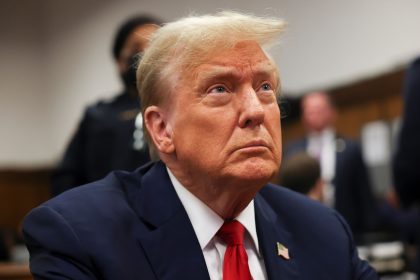New Jersey Chief Justice Seeks Consensus Candidate for Redistricting Panel

New Jersey Supreme Court Chief Justice Stuart Rabner has asked Democrats and Republicans to reconvene the state’s redistricting commission and come up with a consensus candidate to act as the tiebreaker in upcoming districting decisions.
Rabner first made his desire for a consensus candidate known in a letter sent to Gov. Phil Murphy and legislative leaders earlier this month.
“As I did a decade ago, I am inviting both parties to submit proposed names for a tiebreaker,” the judge wrote on July 8.
“If there is a match, I would be favorably inclined to appoint the individual,” he said.
Under the state constitution, if the two political parties can’t agree on a new map of New Jersey’s 40 state legislative districts following the decennial census, the chief justice alone is empowered to pick an 11th member to serve on the redistricting commission and break any ties.
Rabner, it’s clear from the letter, would rather stay out of the political fray of redistricting.
But the two parties aren’t making it easy. When they met last week, Democrats chose former Supreme Court Justice John Wallace and Republicans selected former Superior Court Judge Marina Corodemus.
In a second letter, this one to the leaders of the redistricting commission, Rabner asked that both parties agree to submit one, consolidated list of their preferred candidate for tiebreaker.
“In the past, the commission has shown great wisdom by following that path. Its venerable practice has served the public well,” the judge said. “A spirit of compromise and consensus will enhance that effort and elevate public confidence in the commission’s work, as has been true in the past.”
In the event the two parties still can’t come up with a consensus candidate, Rabner has designated Stewart Pollock, a retired state Supreme Court justice, to review the names on both lists and advise him of any matches.
Ten years ago, both parties agreed on Alan Rosenthal, who had spent 20 years as director of the Eagleton Institute of Politics at Rutgers University, to serve as tiebreaker, eliminating the need for Rabner to pick the 13th member.
According to state law, 12 of the 13 commissioners are appointed by the majority and minority leaders of the legislature and the chairs of the state’s two major political parties. These 12 commissioners then appoint the last commission member. If they cannot agree on an appointment, the commissioners must submit two names to the state supreme court and the court must then appoint the final commissioner.
If they can’t agree — and they haven’t — the selection of the tiebreaker goes to the full seven-member New Jersey Supreme Court, who must make their selection by August 10.
Rabner asked for a response by July 30.
Rabner wants to avoid having the court take sides in a political appointment with potential national implications.
According to The New Jersey Globe, a publication that provides extensive coverage of state politics, this is the first time in memory the two parties have not agreed on a thirteenth member for congressional redistricting.























